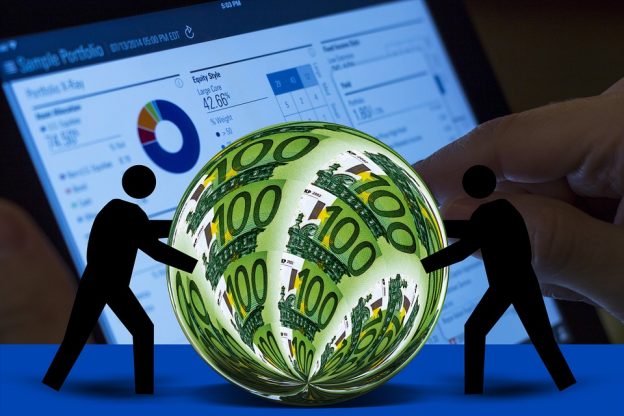Trading forex: what new traders need to know
As investment vehicles go, forex is pretty straightforward. You buy or sell one country’s currency vs another. The asset class you trade is a ‘pair’ consisting of two currencies, and you choose the pairs that suit your trading strategy best.
Like any financial instrument, the price of the currency pair you are trading can rise and fall at any time. So you need to try and predict the direction of travel, and happily there are usually indicators that point the way. This could be a major upcoming news event, or an important announcement about economic data.
The analysis behind forex trading decisions can be as sophisticated and nuanced as you desire, with both fundamental analysis and technical analysis available for different trading instruments. There are other types of analysis like statistical analysis and sentiment analysis, which can all be combined to help identify trends and find the signals that indicate which way the market might be moving.
There are lots of currencies to choose from and some move around more than others so it is important to know the volatility to expect. EUR/JPY, for example, is a very volatile currency and can make or lose money quickly. EUR/GBP, on the other hand, tends to move gradually with fewer sudden dips and spikes.
Technical analysis
This is the study of past prices to try and predict future movements. Analysts have shown that patterns or market behaviour tend to repeat themselves, meaning the future can be anticipated – if not fully predicated. Some traders use technical analysis for entry and exit signals, while some traders use it to define risk and work out where to put stop-loss orders and targets.
Whatever your reason for using technical analysis, it can be complex and requires some study. Price charts have many moving parts. Once you get to grips with them and the relationship between indicators, it can help you become a successful trader.
Fundamental Analysis
This is the study of economics and politics and their observable impact on currency price movements. The announcement of scheduled data points like GDP, employment, and inflation are sure to make the markets move. Knowing them all and working out which ones are most important could be the key to surviving in the markets. Events like US non-farm payrolls and the unfolding Brexit negotiations have all had an impact on their respective countries’ currency values vis a vis others. Understanding them could put you at a competitive advantage.
Risk & Money Management
This is often the most overlooked element of trading, but new traders need to master risk management tools and techniques from the outset. Make sure you have a plan to know much you are looking to risk per trade. Having a stop loss could be the difference in you becoming a successful trader or a losing one. The Forex market can be a very unforgiving arena and if you are learning your craft as a trader you must be willing to lose some money to work out how to trade. There are many tools you can use to manage your risk but the main thing is to have a plan.
Trading Psychology
There is a massive mental element to trading. Knowing when to take profit, knowing when to cut your losses. These are all decisions that need to be made when you are trading and when it comes to money humans are emotional.
Some traders resort to making computer algorithms which obviously can work but if you have the emotional discipline and trading skill you could profit with just human powers alone. There are many resources out there developed to master emotional intelligence in trading and at the beginning, it is easy to overlook the importance of this subject.
Staying positive
Forex trading is really a zero-sum game. If you are winning, someone on the other side of the pair is losing – and vice versa. Obviously you want to stay on the plus side of that equation.
The great thing about the market is that you can choose the timeframe you would like to trade. Trading intraday can be more volatile and if you have a 9-5 day job you could have smaller positions but trade over a longer-term basis, the forex world is your oyster. Just be sure to remember you can lose money as well as gain so risk management is your key to lasting in this market.
Knowing what is going on is also very important as you do not want to place trades not knowing if there is a key event around the corner. Whatever your style, there’s a forex broker out there more than willing to help, with a free demo account to practice your skills, and very-often world-class research – for free.
Author: Nely Mihaylova
















[…] Trading forex: what new traders need to know […]
[…] Trading forex: what new traders need to know […]
[…] Trading forex: what new traders need to know […]
[…] Trading forex: what new traders need to know […]
[…] Trading forex: what new traders need to know […]